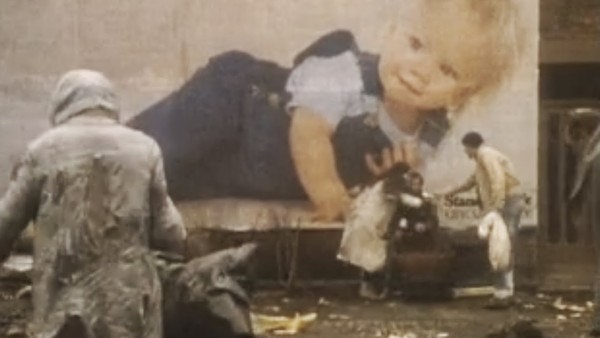The Disturbing Truth Behind The Four-Minute Warning

The bleak Guide to Armageddon was directed by Mick Jackson, and in his next project, he focused more on the aspect of surviving a nuclear attack.
The 1984 television docudrama Threads depicts a hypothetical nuclear attack above the city of Sheffield. Beginning with a normal day in the Northern town, city dwellers weren’t too worried about news reports of unrest between the Soviet Union and the USA. Most people continued with their regular lives for a few days until it happened. One of the characters who had originally scoffed at the threat looks up at the mushroom cloud ahead and says, ‘they actually done it.’
The film refers back to the Protect and Survive pamphlets in the scenes of the immediate fallout. Within a few weeks, most of the main characters had died from infection or radiation.
The film concludes with a character who had managed to survive for several years. Britain had become an unrecognisable wasteland of empty and dilapidated buildings, and the ground was too infertile for sustainable food production. The few passersby were gaunt, hungry, and hostile. Essentially, the world, as we recognised it, had ended.
Despite the Four-Minute Warning programme’s intended purpose of informing the public a nuclear attack was imminent and that the best course of action was to follow Governmental guidelines provided earlier, criticism surrounding the methods increased. By the time the Soviet Union had crumbled, so much information was released which reiterated the sad truth: the aftermath of a nuclear explosion would be a far worse fate than to perish during an attack. Fewer programmes focused on how to survive. Instead, asking audiences everywhere if they would really want to.
Fortunately, with the end of the Cold War and with the START treaties, the imminent threat of nuclear terror was averted. In 1992, the Governmental Four-Minute Warning operation was suspended, and it has not been resumed since. The threat of an immediate nuclear holocaust is more unlikely now than ever, but, with 14,000 warheads still in the world, it remains a possibility.